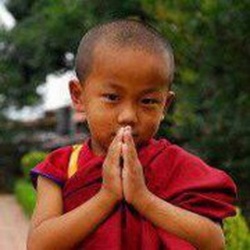Ajivatthamaka Sila (Eight Precepts with Right Livelihood as the Eighth) in Ariya Atthangika Magga (The Noble Eightfold Path) and Dasa Kusala Kamma-patha (Ten Courses of Wholesome Action)
Updated 14th August 2015
Ajivatthamaka Sila (Eight Precepts with Right Livelihood as the Eighth) in Ariya Atthangika Magga (The Noble Eightfold Path) and Dasa Kusala Kamma-patha (Ten Courses of Wholesome Action)
Ajivatthamaka Sila (The Eight Precepts with Right Livelihood as the Eighth)
1) Panatipata veramani sikkhapadam samadiyami
I undertake the Precept to refrain from killing and injuring living beings
2) Adinnadana veramani sikkhapadam samadiyami
I undertake the Precept to refrain from taking that which is not given
3) Kamesu micchacara veramani sikkhapadam samadiyami
I undertake the Precept to refrain from excessive sensuality
4) Musavada veramani sikkhapadam samadiyami
I undertake the Precept to refrain from false and harmful speech
5) Pisuna vaca veramani sikkhapadam samadiyami
I undertake the Precept to refrain from backbiting
6) Pharusa vaca veramani sikkhapadam samadiyami
I undertake the Precept to refrain from using harsh or abusive speech
7) Samphappalapa veramani sikkhapadam samadiyami
I undertake the Precept to refrain from useless or meaningless conversation
8) Micchajiva veramani sikkhapadam samadiyami
I undertake the Precept to refrain from wrong means of livelihood
The Ajivatthamaka Sila occurs in the Abhidhamma Pitaka, Sutta Pitaka and the Commentaries.
Ariya Atthangika Magga (The Noble Eightfold Path)
Wisdom Group Pannakkhandha
1. Right view samma-ditthi
2. Right motivation samma-sankappa
Morality Group Silakkandha
3. Right speech samma-vaca
4. Right action (bodily) samma-kammanta
5. Right livelihood samma-avjiva
Concentration Group Sammadhikkhandha
6. Right effort samma-vayama
7. Right mindfulness samma-sati
8. Right concentration samma-samadhi
The Ajivatthamaka Sila corresponds to the Sila (morality) group of the Noble Eightfold Path. The Buddha’s teachings in their practical aspect are the threefold training of Sila (morality), Samadhi (concentration) and Panna (wisdom). The threefold training includes the entire Noble Eightfold Path. The wholesome physical and vocal actions in the Ajivatthamaka Sila are morality as taught in the threefold training and in the Sila (morality group) of the Noble Eightfold Path: Right Speech, Right Action and Right Livelihood.
Venerable Ledi Sayadaw explains the “forming of the Noble Eightfold Path into Three Groups as follows:
1. Silakkandha (Morality-group) comprises Right Speech, Right Action and Right Livelihood.
2. Sammadhikkhandha (Concentration-group) comprises Right Effort, Right Mindfulness and Right Concentration.
3. Pannakkhandha (Wisdom-group) comprises Right Understanding and Right Thinking.” (Magganga-Dipani: The Manual of The Constituents of the Noble Path, 1986 edition pages 42-43)
“The three constituents of the Morality-group, when considered in detail, become Ajivatthamaka Sila in the following manner:
1. I will abstain from taking life.
2. I will abstain from stealing.
3. I will abstain from indulging in sexual misconduct and taking intoxicants.
These three comprise Right Action.
4. I will abstain from telling lies.
5. I will abstain from setting one person against another.
6. I will abstain from using rude and rough words.
7. I will abstain from talking frivolously.
These four comprise Right Speech.
8. Samma-ajiva (Right Livelihood) means livelihood without resorting to taking lives, etc.
Thus the three constituents of the Morality-group, become Ajivatthamaka Sila.” (Magganga-Dipani: The Manual of The Constituents of the Noble Path, 1986 edition page 43)
Dasa Kusala Kamma-patha (Ten Courses of Wholesome Action)
The Dhamma explains three types of kamma: kaya kamma (bodily action), vaci kamma (vocal action), and mano kamma (mental action). These are known as the three doorways of action and are presented as the Dasa Kusala Kamma-patha (Ten Courses of Wholesome Action) in the Sutta Pitaka. The first seven Precepts of the Ajivatthamaka Sila correspond to the first seven of the Dasa Kusala Kamma-patha (Ten Courses of Wholesome Action). The first three Precepts correspond to the bodily action group and the fourth, fifth, sixth and seventh Precepts correspond to the verbal action group. The Ten Courses of Wholesome Action are explained in the The Book of The Gradual Sayings (Anguttara Nikaya) Volume V (The Book of The Tens and Elevens), Chpter III The Great Chapter IX (28) The Great Questions and Chapter XVII Janussoni X (176) Cunda the Silversmith
1. Avoidance of killing Panatipata veramani
2. Avoidance of stealing Adinnadana veramani
3. Avoidance of abuse of the senses Kamesu micchacara veramani
4. Avoidance of lying Musavada veramani
5. Avoidance of slandering Pisuna vaca veramani
6. Avoidance of harsh speech Pharusa vaca veramani
7. Avoidance of frivolous talk Samphappalapa veramani
8. Unselfishness/non-covetousness Anabhijjha
9. Good-will/non-illwill Avyapada
10. Right Views/Right Understanding Samma ditthi
Bibliography
Ledi Sayadaw, Venerable. 1986. (Revised edition) Magganga-Dipani: The Manual of The Constituents of the Noble Path. (Southsea, S.S. Davidson). (0-9511206-0-3)
Available online at
http://holybooks.lichtenbergpress.netdna-cdn.com/
http://holybooks.lichtenbergpress.netdna-cdn.com/wp-content/uploads/The-Manuals-of-Buddhism.pdf?a20918
Source
By Bodhicarini Upasika Jayasili BGKT Buddhist Group of Kendal (Theravada) England UK





